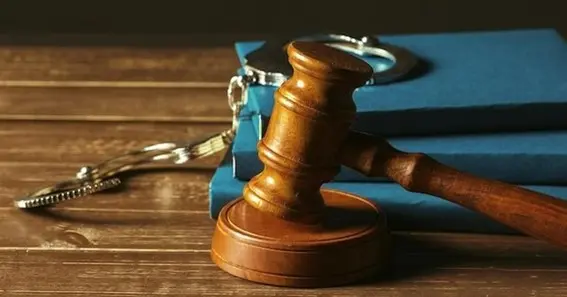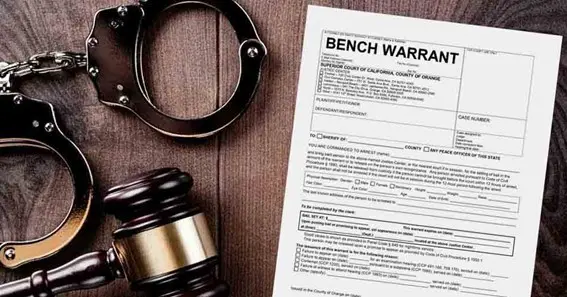What is a Bench Warrant? Bench warrants ensure that persons attend court and follow the judge, especially in intricate cases. People going through court find bench orders confusing. This guide explains bench warrants, their meaning, and how to care for them. Read more about what is a bench warrant.
What Is A Bench Warrant?
A bench warrant is a court order for the arrest and custody of suspects. Bench warrants are usually issued for civil violations like missing court or following a court order. With probable cause, an arrest warrant is issued. This begins the criminal process. Bench warrants enforce the law in the judicial system, albeit details may vary. so now you understand what is a bench warrant let’s explore more about bail being appested on a bench warrant.
Can You Post Bail After Being Arrested On A Bench Warrant?

It can be confusing to grasp bail and bench warrant laws. You may ask if you may post bond and get released from bench warrant arrest. Look into bench warrant bail.
Issuance Criteria:
Bench warrants are frequently issued for missing court or breaking court orders. Failure to comply with court instructions might result in a bench warrant from the judge or magistrate. People who don’t appear for their criminal trial, pay fines or restitution, or obey probation or parole requirements are often granted bench warrants.
Arrest Authority:
Police can arrest the person identified on a bench warrant. Bench warrants are issued for noncompliance with court orders or appearances. This differs from arrest warrants in criminal cases, which need solid cause. Therefore, people who have bench warrants could be arrested during routine traffic stops, meetings with police officers, or other situations where their name is checked.
Bail Considerations:
After a bench warrant arrest, many factors determine whether a person can post bond and be released. The charges, jurisdiction, and criminal history are among these. Bail can release someone from jail while the bench warrant is processed. Bail status is subject to the judge’s discretion.
Resolution Process:
Removing a bench warrant normally requires going to court on your own to resolve the legal issues. If the person appears in court and follows orders, the judge can cancel or return the bench warrant. However, case details may lead to extra-legal actions or sanctions. People with bench warrants need to talk to a good lawyer immediately to get through the settlement process smoothly.
Legal Representation:
Bench warrant defending requires a trained attorney. A skilled lawyer can advise on how to handle the warrant, represent the person in court, and handle other legal proceedings. A lawyer can help clients understand their rights, explore defense options, and mitigate bench warrants.
What Takes Place After A Bench Warrant Is Issued?

As soon as your bench warrant comes out the order is sent to the county office. What’s in the bench order is written down in the county office. The county office sends these records to police departments all over Pennsylvania. (If you were granted a return, your information could be sent to police departments all over the United States). The county office collects and shares information about where the police might be able to find you.
What Does A Bench Warrant Mean When It Is Served?
You could be punished in the following ways if your bench warrant isn’t recalled:
Should the cops come across you, they may decide to arrest you for your outstanding bench warrant. You could be jailed (but get out if someone pays your bail or bond). You could be taken to court if you can’t pay your bail or bond. The judge may keep you in jail if you are brought before them. The judge may also hold a hearing or free you and set a court date.
You could be charged with a misdemeanor if you didn’t attend court as ordered on your bench warrant. You could defend yourself against this charge if you couldn’t go to court for reasons that weren’t your fault. Do not show up to court for a criminal charge. You could get a fine, go to jail, or go to prison. For a crime like not paying a fine, you could face other punishments that are the same.
Conclusion
From the above stuff, you understand what is a bench warrant. Bench warrants are essential to the legal system because they ensure people follow court rules and show up for their dates. People can deal with bench warrants successfully and reduce their legal exposure by understanding the requirements for issuance, the consequences of arrest, bail options, the resolution process, and the significance of having a lawyer. Now you understand what is a bench warrant.
FAQ
What Should I Do If I Find Out I Have A Bench Warrant For My Arrest?
If you find out you have a bench warrant for your arrest, you must act immediately. Talk to a defence attorney about your choices and determine the best way to get the warrant lifted.
Can I Be Arrested Anytime With A Bench Warrant?
Police can indeed arrest you at any time if you have a bench warrant out for your arrest. Taking care of the warrant immediately is essential to avoid being arrested without warning and possible problems.
Can A Bench Warrant Arrestees Post Bail?
Whether or not someone can post bail after being arrested on a bench warrant rests on several things, such as the charges and the rules of the jurisdiction. It would help if you talked to your lawyer about your bail choices.
Will Getting Rid Of A Bench Warrant Erase My Criminal Record?
Getting rid of a bench warrant usually means going to court and dealing with the legal problems that led to the warrant. Getting rid of the order might lessen some of the effects, but it might not completely rid you of your criminal record. Your lawyer can help you figure out how to handle any outstanding legal problems.
What Will Happen If I Don’t Follow A Bench Warrant?
Ignoring a bench warrant can get you into more legal trouble, including charges and possible punishments. It’s essential to take care of the warrant immediately to keep things from worsening and get legal help on the best way to proceed.
In Michigan What Is Seriousness Of Bench Warrant?
It allows the police personnel to arrest the person who was absent in court when was needed to be present in court on the given date.
Here are some interesting post What Is Quid Pro Quo Harassment?
Sources:
https://www.notafraidtowin.com/glossary/bench-warrant/
https://www.davidmckenzielawfirm.com/faqs/what-is-a-bench-warrant/
We have covered all the below topics in the above article
Bench warrant
Arrest warrant
Court order
Judicial warrant








